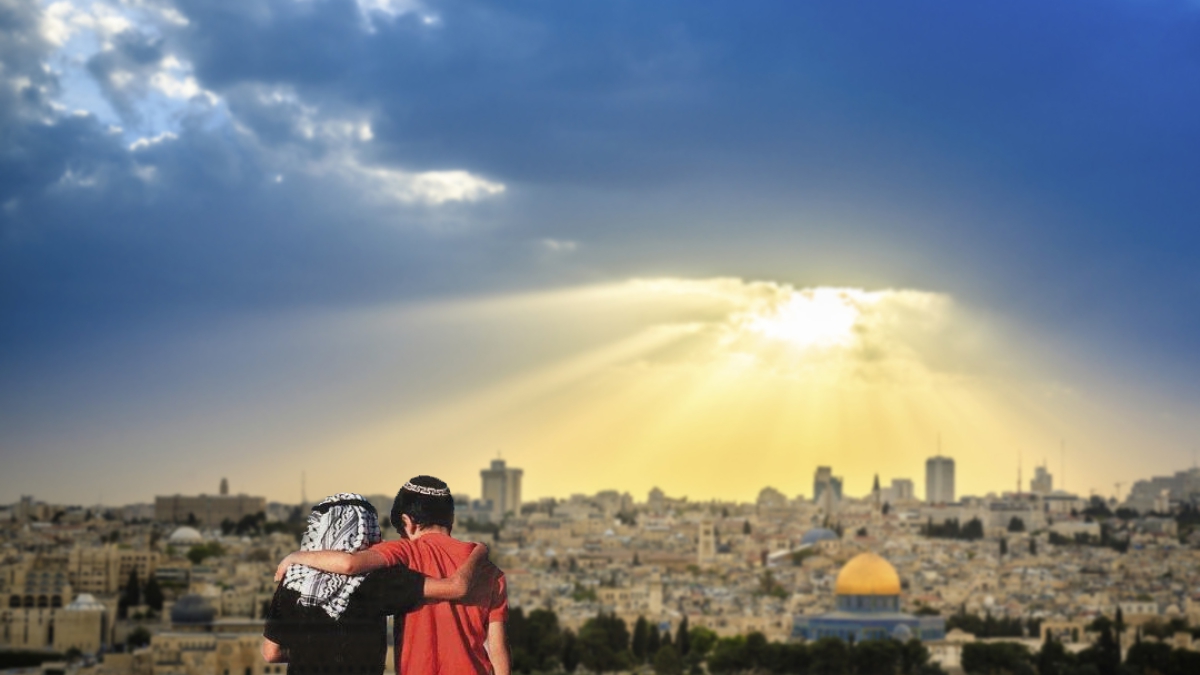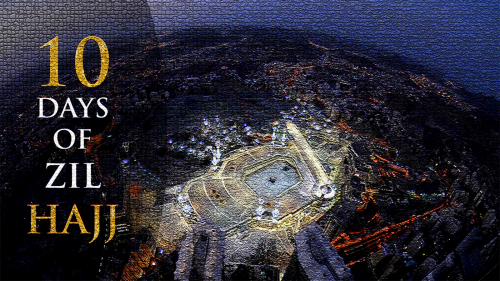Jewish Muslim Brotherhood In Reaction to Hate Crimes

After a Florida mosque was torched in an arson attack, a local Muslim noticed something odd about donations made to a repair fund he launched. Instead of the round numbers Adeel Karim expected —$25, $50, $100 or more —the donations were in multiples of $18 — $36, $72, $90 and more.
“I couldn’t understand why people were donating in what seemed like weird amounts to the cause,” Karim wrote in a Facebook post Monday (Feb. 27). “Then I figured out after clicking on the names Cohen, Goldstein, Rubin, Fisher …. Jews donate in multiples of 18 as a form of what is called ‘Chai.’ It wishes the recipient a long life.”
Specifically, since each Hebrew letter has a numerical value; the letter “chet” equals 8 and “yod” equals 10. Together they form the Hebrew word “chai,” which has a numerical value of 18 and means “life.”
Karim’s local mosque, the Islamic Society of New Tampa, which had its exterior damaged by an arsonist on Feb. 24, is the latest beneficiary of a new wave of interfaith support between Jews and Muslims since the inauguration of President Trump. Other instances of interfaith support include:
When vandals damaged headstones in a Missouri Jewish cemetery last month, Muslim activists raised more than $125,000 to fund repairs.
When a Victoria, Texas, mosque was burned by vandals in late January, members of a local Jewish congregation gave the displaced Muslim worshippers a key to their synagogue so they could share a worship place together.
“Everyone knows everybody, I know several members of the mosque, and we felt for them,” said Robert Loeb, the president of Bnai Israel, which is affiliated with the Jewish Reconstructionist movement.
When vandals toppled more than 100 headstones in a Jewish cemetery in Philadelphia last weekend, Muslims and others traveled from other states to repair them.
The Muslim Student Associations of Florida State and Florida A&M universities delivered bouquets of flowers to campus Jewish organizations and local synagogues in a show of solidarity after the two cemetery attacks.
Jonathan Greenblatt, head of the Anti-Defamation League, an anti-Semitism watchdog group, received a standing ovation when he said at a conference that if U.S. Muslims were forced to register with the government, he would register as a Muslim, too.
As in all those incidents, fundraising efforts to repair the damage at the Tampa mosque quickly exceeded their $40,000 goal; as of March 2 morning, $71,000 had been raised.
These accounts of brotherly love are a modern descendant of the following archetypical fable, transmitted orally in both Arabic and Hebrew for many centuries; and finally written down in several different versions in the 19th century.
“Two brothers who inherited a ‘valley to hilltop’ farm from their father divided the land in half so that each one could farm his own section. Over time, the older brother married and had four children, while the younger brother was still not married.
One year there was very little rain, and the crop was very meager. This was at the beginning of a long term drought that would turn the whole valley into an arid, treeless, desert where even grain did not grow, and all the springs dried up.
The younger brother lay awake one night praying and thought: "My brother has a wife and four children to feed, and I have no children. He needs more grain than I do; especially now when grain is scarce."
So that night, the younger brother went to his barn, gathered a large sack of wheat, and left his wheat in his brother's barn. Then he returned home, feeling pleased with himself.
Earlier that very same night, the older brother was also lying awake praying for rain when he thought: "In my old age, my wife and I will have our grown children to take care of us, as well as grandchildren to enjoy, while my brother may have no children. He should at least sell more grain from his fields now, so he can provide for himself in his old age.
So that night, the older brother also gathered a large sack of wheat, and left it in his brother's barn, and returned home, feeling pleased with himself.
The next morning, the younger brother, surprised to see the amount of grain in his barn seemed unchanged, said "I did not take as much wheat as I thought. Tonight I will take more."
That same morning, the older brother, standing in his barn, was thinking the same thoughts.
After night fell, each brother gathered a greater amount of wheat from his barn and in the dark, secretly delivered it to his brother's barn.
The next morning, the brothers were again puzzled and perplexed. "How can I be mistaken?" each one thought. "There's the same amount of grain here as there was before. This is impossible! Tonight I will make no mistake—I will take two large sacks.”
The third night, more determined than ever, each brother gathered two large sacks of wheat from his barn, loaded them onto a cart, and slowly pulled his cart toward his brother's barn. In the moonlight, each brother noticed a figure in the distance.
When the two brothers got closer, each recognized the form of the other and the load he was pulling, and they both realized what had happened!
Without a word, they dropped the ropes of their carts, ran to each other and embraced.”
May the inspiration of this ancient tale, transmitted orally in both Arabic and Hebrew for many centuries, help both Jews and Muslims overcome the hate filled actions in today’s world.
Rabbi Maller’s web site is: www.rabbimaller.com
Topics: Interfaith, Jews Values: Compassion, Tolerance
Views: 1335
Related Suggestions

















